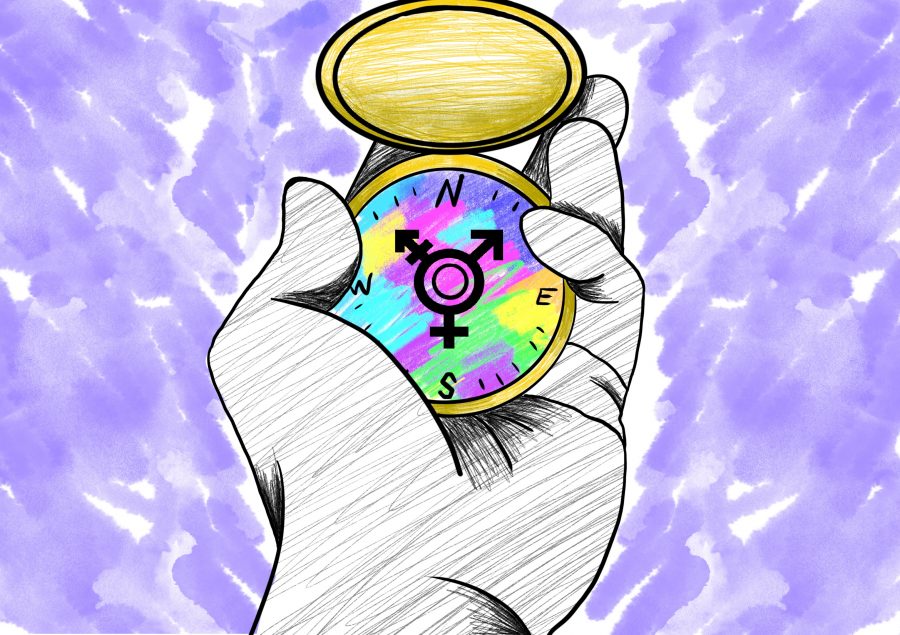Early in my freshman year, one of my first lesbian friends at UT said to me in the Gender and Sexuality Center, “If you slept with a man, that means you’re not Gold Star anymore.” I had been out as a lesbian for three years before then, but upon joining a new and exciting queer community, I began to understand that my attractions were broader than I had previously believed.
I confided in my queer friends, who I expected to support me. Instead, I found I had been judged as a less valuable queer person because I had done something they perceived as “straight.” I was no longer golden. I had been tarnished in their eyes.
The LGBTQ community at UT has been central to my experience here. My queer friends have shown me the depth and value of platonic love, grown with me and supported me, and I’ve tried to do the same for them. However, it’s this same vibrant community that has also at times erased and degraded the identities of bisexuals.
I’ve been told by members of our queer community that bisexuals are “straight-passing,” and therefore don’t experience as much discrimination as gay men and lesbians. I’ve heard from members of our community that someone is not really bisexual if they haven’t had sex with men and women. I’ve been told that bisexuals are transphobic, and only pansexuals are trans-inclusive. All of these things are false.
To clear things up, it’s a form of oppression for bisexuals to move through the world with their identity denied or unacknowledged, not a privilege. To be assumed straight by anyone is erasure, but it’s particularly egregious when this comes from within our queer community. Bisexuals are bisexual regardless of who they’ve had sex with or been in a relationship with. A bisexual who is in a relationship with someone of a different gender is not in a heterosexual relationship, they’re in a relationship. Calling it anything else erases their queerness. Bisexuals can be more attracted to certain genders over others or attracted to all genders equally, and none are more or less valid as queer folks as a result.
Bisexuals aren’t inherently transphobic because trans men are men and trans women are women. Bisexuals can be attracted to gender nonconforming folks too because the “bi-” in bisexual doesn’t refer to there only being two genders — similar to the way the “bi-” in bilingual doesn’t refer to there only being two languages.
Implying that bisexuals are only attracted to cismen and ciswomen erases the vast range of attractions we experience. I know dozens of bisexuals, and none of them can say they’ve never felt pressure to conceal their bisexuality in queer spaces — queer spaces at UT included. We’ve felt pressure to avoid mentioning different-gender partners. To over rely on our same-gender loving experiences to relate to our queer peers. To overemphasize our dislike of men. To treat our different-gender loving experiences as embarrassing mistakes. These are examples of ways we’re asked to participate in our own erasure, and the reason why I believe we struggle so hard to foster a thriving bisexual community.
The cumulative stress we carry from this stigma is probably why we’re more likely than our gay and lesbian siblings to have considered or attempted suicide. Despite the fact that we are the largest group of the LGBTQ acronym, we experience erasure so strong that we sometimes ask ourselves if we really exist. I love UT’s queer community with my whole heart, but too often I don’t feel that it loves me back. I hope for a queer community where bisexuals can be open about our experiences and still be loved and respected, where we can find each other because we aren’t being erased.
We must ask ourselves what our queer community loses when it excludes the breadth of bisexual experience. As we continue work to cultivate our queer community, my hope is that we can be more mindful of the ways we perpetuate erasure and stigma against our bisexual comrades.
Derrick is a sociology senior.





















